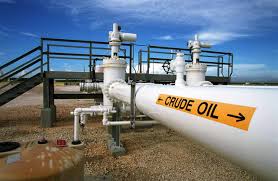
The Federal Government says the drop in Nigeria’s crude oil production was due to issues encountered on the Trans Niger Pipeline, coupled with maintenance activities carried out by some oil companies operating across the country.
It, however, stated that efforts were on to fix the pipeline, adding that this would enable the country to produce up to 1.7 million barrels per day of crude oil and condensates.
The Trans Niger Pipeline is a major oil pipeline in Nigeria that transports crude oil extracted from oil fields in Rivers and Bayelsa States to the Bonny Crude Oil Export Terminal.
It is operated by Shell Petroleum Development Company Joint Venture, with a capacity of about 180,000 barrels of crude oil per day, which is about 15 per cent of Nigeria’s daily output.
The Trans Niger Pipeline is an important part of Nigeria’s oil infrastructure, but it has faced significant challenges in recent years.
According to an earlier report, Nigeria’s crude oil production witnessed the second consecutive monthly decline this year, as it dropped to 1.231 million barrels per day in March, according to the latest report from the Organisation of Petroleum Exporting Countries.
Reacting to this on Friday, the Minister of State for Petroleum Resources (Oil), Heineken Lokpobiri, said the drop in production was due to issues encountered on the Trans Niger Pipeline.
Meanwhile, Lokpobiri anticipated that “Nigeria’s oil production, including condensate, which was approximately 1.7 million barrels per day prior to these developments, will soon be restored.”
He also said that the Federal Ministry of Petroleum Resources was actively engaged in policy evolution aimed at maximising the utilisation of all available wells in Nigeria.





